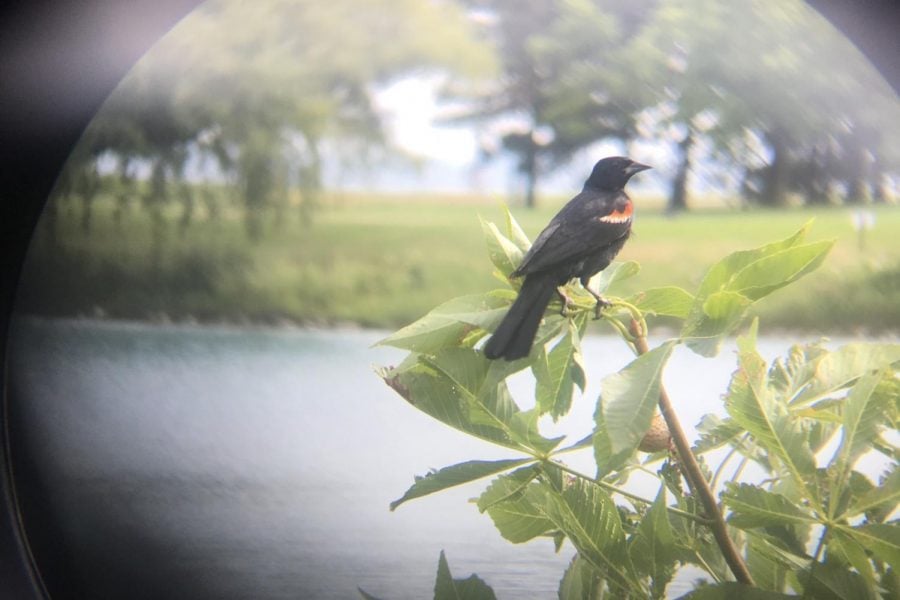Northwestern community members to host spring migration walk emphasizing Indigenous knowledge
A bird photographed on previous walks. On Saturday morning, masked, socially distanced attendees will congregate on campus to celebrate spring migration.
May 21, 2021
Northwestern community members will go on an organized walk through campus this Saturday, celebrating spring migration of birds through Indigenous knowledge.
At 9 a.m., masked, socially distanced attendees will congregate in front of the Center for Native American and Indigenous Research and give land acknowledgment. They will then walk to Clark Street Beach Bird Sanctuary.
The event seeks to foster a type of birding that’s steeped in Indigenous knowledge, co-organizer Ph.D. candidate Nikki McDaid, who is Shoshone-Bannock, said.
“The goal for us is to make relations with our bird relatives,” they said. “It’s really trying to live and be in a good way with the lands and waters.”
The event is open to anyone regardless of their knowledge of birding, McDaid said. All community members looking to cultivate a relationship with the environment are welcome to attend.
The event comes after the group birding paused during the pandemic. Mass vaccination and a recent Centers for Disease Control and Prevention amendment allowing outdoor activities opened opportunities for the community members to organize, McDaid said.
Josh Honn, English and Digital Humanities Librarian at the University library who co-organized the event, said he has participated in birding over the last seven years. Honn said he used to wait at the Weber Arch every month and go on a birding walk with whoever showed up.
That’s why McDaid and Honn decided to open up the migration celebration walk to the broader NU community.
“We just learned so much from each other,” Honn said. “I’m excited to share space with folks in nature while learning and growing and seeing this campus in a different way that we kind of take for granted sometimes.”
The campus is an Indigenous nature space, Honn said. As a result, he said he hopes to raise conversations about how to best support and be responsible for nature on campus.
Ph.D. student Ally Reith said she looked forward to attending the migration walk. Two years ago, Reith attended an event that CNAIR and Honn coordinated where community members engaged in a bird walk and a lunch after.
“I had never done (birding) before, and it was such a magical experience and I had such an amazing time that I immediately bought binoculars,” Reith said.
During the pandemic, birding grounded Reith, she said. Watching birds build a nest, herons catch fish in the pond and other activities helped her decompress.
Birds that don’t reside in the Chicago area full-commute across the region during the spring migration period. Reith said she hopes to see birds like warblers, which are colorful and hard to spot.
McDaid said even though this is an informal event, they hope it inspires people to build relationships with bird relatives on the campus.
“I hope that inspires the people to think about birdwatching as a way of relating to our bird relatives in a good way and think about the gifts that we can give to birds (and) the gift that birds give to us,” she said.
Email: [email protected]
Twitter: @YunkyoMoonK
Related Stories:
— Students create group chat to document rabbit sightings around campus
— Lakefill beaver family creates community during COVID-19 shutdown


